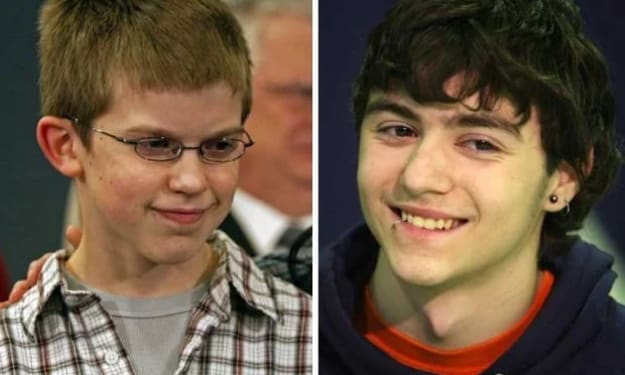Dean Corll: Hidden Horrors Unveiled
Dean Corll, known as the "Candy Man," terrorized Houston in the 1970s as a serial killer. He lured victims with candy, targeting young boys and men, subjecting them to torture, abuse, and murder.

Dean Corll, infamously known as the "Candy Man" was a serial killer who terrorized Houston, Texas during the early 1970s. Corll's heinous crimes shocked the nation and highlighted the chilling reality of the danger posed by seemingly ordinary individuals.Born on December 24, 1939, Corll grew up in a seemingly unremarkable family environment. His early life displayed few warning signs of the monstrous behavior he would later engage in. As a teenager Corll exhibited an interest in electronics and even started his own candy factory, which earned him the nickname "Candy Man" due to his generosity in distributing sweets to neighborhood children.
However, behind this façade of normalcy lurked a disturbing secret. Corll's sinister transformation began to unfold in the late 1960s when he befriended David Brooks and Elmer Wayne Henley, two teenagers who would become his accomplices in a spree of brutal murders. Corll's charisma and manipulation drew them into his web of violence.Between 1970 and 1973 Corll embarked on a horrifying killing spree, targeting young boys and young men. His victims, often lured with promises of parties, drugs, or money, would ultimately fall victim to his sadistic desires. Corll's modus operandi involved abducting his victims restraining them, and then subjecting them to prolonged periods of torture and sexual abuse before ending their lives.
Corll's crimes went unnoticed for an extended period due to the transient nature of his victims and the general sense of safety in the community. The police struggled to connect the dots between the disappearances, and Corll continued to evade suspicion. This changed in 1973 when Henley, one of Corll's accomplices, turned against him, leading authorities to a shocking discovery.Henley's confession unveiled the grim reality of Corll's actions. He provided crucial information about the location of the burial sites, revealing the horrifying extent of the killings. Law enforcement recovered the remains of 29 victims from various makeshift graves, cementing Corll's reputation as one of the most prolific serial killers in American history.
The case sent shockwaves throughout the country, shedding light on the dangers of trust and the lurking darkness that can reside within seemingly ordinary individuals. The media and the public were captivated by the gruesome details of Corll's crimes, and his moniker the "Candy Man," became synonymous with unspeakable evil.The investigation and subsequent trial brought to light the extent of Corll's sadistic tendencies, as well as the complicity of his accomplices. Brooks and Henley both faced justice for their roles in the murders, with Henley eventually being convicted of multiple charges and receiving a 594-year sentence.
Corll himself, however, would never face the consequences of his actions. In August 1973 he was confronted by Henley, who had grown increasingly fearful of Corll's intentions. In a desperate attempt to save his own life and those of his friends, Henley shot and killed Corll. The scene that unfolded was one of grim irony, as the predator met his end at the hands of one of his own victims.The legacy of Dean Corll lives on as a chilling reminder of the darkness that can hide within human nature. His case exposed the vulnerability of trusting relationships and the potential for cruelty that can emerge from even the most innocuous appearances. The "Candy Man" remains a haunting figure in the annals of criminal history, a symbol of the terrifying reality that evil can exist in the most unexpected places.
About the Creator
Enjoyed the story? Support the Creator.
Subscribe for free to receive all their stories in your feed. You could also pledge your support or give them a one-off tip, letting them know you appreciate their work.





Comments
There are no comments for this story
Be the first to respond and start the conversation.